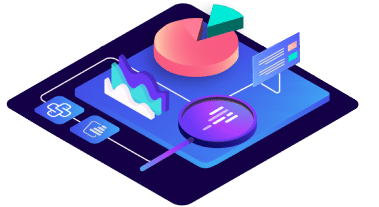Qualification for the job role as Python Programmer

Learning to program in Python is now easier than ever. With the certified online Python Programmer training, you'll get started in software development with Python. You will learn the basics of the Python programming language and become familiar with the most important programming concepts such as variables, types, functions and methods.
Based on this, you develop and extend classes and modules independently. You perform unit tests and thus ensure the functionality of your code. You work with the widely used Python Standard Library and dedicate yourself to advanced concepts of object-oriented programming such as inheritance and composition.
You'll finish the online course with a company-relevant final project to configure a password manager, and upon successful completion of the career path, you'll qualify for a job role as a Python Programmer, Python Developer, or Software Developer.
Chapter 1: Data types
In this chapter you will navigate through our programming environment - the Data Lab - for the first time and execute your first code commands. You will learn what data or text represents in Python. Using a set of rules, you will learn how to create, assign and test data in variables. You will then learn how to read out common error messages and practice how to use them productively in your day-to-day work. You will also learn basic Python standard functions, such as type() or str() and use them in application examples. After you‘ve learned about the if statement and can use it to control the flow of your code with conditions, you will finish the chapter with the first part of a two-hour mini-project: You will program a user interface that reacts flexibly to the user‘s input.
Chapter 2: Flow control
In the second chapter you will work on two essential operations to make your code even more flexible: You will learn about lists and for-loops. Lists allow more flexibility in storing data and are a prerequisite for advanced programming. You will learn to create them, read them and change them purposefully. You will use lists to extend the functionality of your user interface from the first chapter and complete the first mini-project. Afterwards you will work with for-loops, which you can use to automatically execute your code several times and level up your programming.
Chapter 3: Functions, modules and methods
In the third chapter, you will round off your programming skills in Python and learn some advanced techniques. These include functions and methods. You learn how to define your own functions to structure your code better. You will also combine the individual programming elements such as conditions, loops and functions in programs. You will use various methods and learn how to import Python modules correctly and how to ensure functionality as a whole. Linked to this you will learn how to import and export data as a simple test. In a one-hour mini-project involving telephone data, you will consolidate what you have learned in the chapter.
Chapter 4: Python applications
In the fourth chapter, you will recap content from chapters 1-3 and round it off with additional material. You‘ll learn what dictionaries are and how they can make your code more efficient. You will get to know complex data structures that you will need for your final project. In a four-hour hands-on project to create a complex user interface for automatically processing customer requests, you will need to bring together everything you learned in the previous chapters.
Chapter 2: OOP basics
In the second chapter you will learn what OOP is, which program principles are based on it, and which conclusions you can draw from it, using simple examples. In the main part of the chapter you explore how classes and attributes are defined and used. You will use examples to examine instance methods and how to use them and define them with method chaining. You‘ll learn what the self keyword is, as well as how to distinguish debugging from class definitions. Finally, you will test your previous knowledge in an interactive intermediate project and repeat the exercises from the chapter.
Chapter 3: Inheritance and composition
In the third chapter, you will learn what inheritance and composition are and how to use these concepts in use cases. In addition to simple inheritance, you will also learn more advanced methods such as inheritance hierarchy and multiple inheritance. In doing so, you‘ll practice deep inheritance methods used in the reusability of data from parent to child classes, compensating for data loss. Finally, we will provide you with the most important best practices for unit tests, so that you can detect errors in your code before your users find them.
Chapter 4: Advanced OOP
In the fourth chapter you will deal with more advanced terms of object-oriented programming, which will accompany you in your daily work. You will study how programs and modules differ and what role __main__ plays. You will learn what decorators are and how to use property decorators optimally. You will look at static and class methods and what special methods and class representations can be used with __str__() and __repr__(). Based on this, you will learn about the options for representation operator overloading offers as well as other important methods from the Python Standard Library and then apply the learned content in a company-relevant interim project.
Chapter 5: OOP applications
In the fifth chapter, you will demonstrate your knowledge in two larger projects that represent classic use cases of object-oriented programming. In the first project, you‘ll build your own interface to a popular data science library that enables further uses for machine learning and data or text analytics. The second project deals with programming your own blockchain, where you will learn more about the underlying concepts. By the end of Module 2, you‘ll be equipped to apply OOP in the corporate world.
The demand for data experts is high. Around 4 million data experts will be needed in Europe by 2025. In Germany alone, 149,000 IT jobs are currently vacant. The demand for data and AI experts in particular continues to grow enormously.
But a decision for a data career is so much more than just a safe decision for the future! As a data expert, you deal with powerful, socially relevant topics, are a tech professional, and are communicative and creative at the same time. The profession is varied, can be combined with most other professions and offers an attractive salary. And most importantly, with us it can be learned unerringly!
Yes, after successful completion of the training, you will receive a certificate of completion from us that you can show in your job applications. Data Analysts and Data Scientists are desperately sought after in many business sectors. Even without relevant work experience, your chances of finding an entry-level job are good. In addition, there are analysts in almost every industry who have different job titles, but the skills you need are the same as those of a data analyst or data scientist.
Yes, our online training courses are designed to offer you the greatest possible flexibility. In general, we recommend that you plan six to eight hours per week for learning. When you want to schedule this time is up to you and is not prescribed by us. In our career paths, the Data Analyst and Data Scientist course, we offer live webinars where you can ask our mentors questions, but you don't have to attend if it doesn't fit into your schedule.
(Participants in our sponsored training courses are excluded. These must attend a fixed number of hours per week and are obliged to participate in the live webinars).





StackFuel GmbH
Nostitzstrasse 20
10961 Berlin
info@stackfuel.com
030 / 544 533 420
We need your consent before you can continue to visit our website. We use cookies and other technologies on our website. Some of them are essential, while others help us improve this website and your experience. For more information about how we use your data, please see our Privacy policy.
We use cookies and other technologies on our website. Some of them are essential, while others help us improve this website and your experience. For more information about how we use your data, please see our Privacy policy. Here you can find an overview of all cookies used. You can give your consent for entire categories or view more information and select specific cookies.